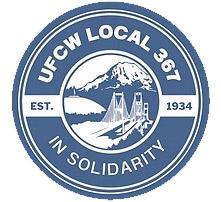Alliance Open Tees Off at Riverside Friday, Sept. 15 Chair’s Corner
By The Economic Alliance of Lewis County
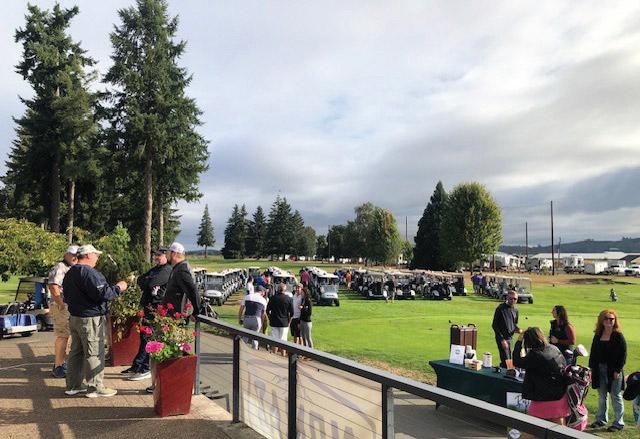
Alliance
The Alliance Open hosted a packed field during last year’s tournament.
The Alliance Open, the annual golf tournament hosted by the Economic Alliance of Lewis County, is just a few weeks away.
The event is Friday, Sept. 15 at Riverside Golf Course in Chehalis, located at 1451 NW Airport Road. Registration starts at 8:30 a.m., with a shotgun start at 10 a.m. The tournament is a four-man scramble, with lunch included, great prizes and raffle tickets available for $5 or five for $20. Cost is $1,000 for a four-person team.
“We are excited to bring back the Alliance Open for year three,” said Economic Alliance of Lewis County’s External Relations Manager Eric Sonnenberg. “We have had tremendous community support and look forward to this year’s tournament. Thank you to Riverside Golf Club for hosting us. Don’t miss out on the Skills Competition with its grand prizes. There are great odds to win a free membership out there.”
Win a golf membership
In addition to the four-man scramble on Friday, a Skills Competition Night starts at 5:30 p.m. the night before the tournament — Thursday, Sept. 14, also at Riverside Golf Course. The Skills Competition Night includes competitions for longest drive, chipping and putting.
Riverside head golf professional Austin Abbott has some tips for golfers about to enter the skills challenge in just over two weeks. He should know. He had his own set of clubs at the age of three and never stopped swinging.
Abbott, who runs the Skills Competition composed of driving, chipping and putting, explained how it works.
“You’re going to have to hit a driver, a chip and some putts,” Abbott said.
For the driving portion, golfers will head to the driving range where they will be given three balls. To score, you must stay within marked boundaries. Each ball has points potential. For the chipping, participants will be set up about 20 yards in front of the 18th hole green. Again, three balls. A bulls eye will be marked around the green, with more points awarded the closer to the hold. Same thing for the putting competition.
Abbott suggests for the next 19 days leading up to the Alliance Open, head out to the course for about 90 minutes as much as you can. First, hit a small bucket of balls for about an hour on the driving range focusing on accuracy. You don’t score if you can’t hit it straight, no matter how far you blast it. Then, spend 15 minutes chipping followed by 15 minutes putting.
“If you do that a couple of times, I think you’ll be ready,” Abbott said.
Not bad odds in earning an annual membership at the golf course, which has a cost of $1,500.
The skills challenge is open to the public; you don’t have to be a player in the Alliance Open to participate.
Cost is $50 to enter all three competitions, or $20 per category. Entry includes a drink ticket. The Thursday event includes music, appetizers and two no host bars.
The Skills Competition Night has two divisions, with first place being the Riverside Golf Course membership under the competitive category, and a stay at McMenamins for first place in the non-competitive category.
To pre-register, call 360-748-0114. The Skills Competition Night is sponsored by Drybox.
Economic Revitalization Board invests $1.125M in Tenino
By The Economic Alliance of Lewis County
The Washington State Community Economic Revitalization Board (CERB) approved $3.375 million in low-interest loans and $1.175 million in grants for economic development and public infrastructure improvements intended to spur business growth and job creation in Thurston, Skagit, and Whitman counties.
For Thurston County, CERB invested in Tenino a $1.125 million loan and $375,000 grant for the “Southwest Washington Agricultural Business and Innovation Park Project.” This project includes engineering, design, and construction of a public facility, along with new sidewalks and parking lot, according to a news release.
Their Committed Private Partner, Dragonwheel Investment Group, Inc., is investing $2.1 million in the project, which is estimated to create and retain 40 jobs. Approximately $2.7 million in other state and local resources match
CERB funds.
Skagit County – $2.25 million loan and $750,000 grant to the Port
of Skagit County for the “Watershed Business Park Project 1 Development Project.” This project will build utility infrastructure and make multimodal road improvements to develop Watershed Business Park Project 1, including landscaping and other site work. This project is estimated to leverage $3.1 million in private investment and create 60 jobs. CERB funds are matched by $3 million in local resources.
Whitman County – $50,000 grant to the City of Palouse for the “St. Elmo Revitalization Study.” This study will determine the feasibility of renovating the St. Elmo hotel building. CERB funds are matched by $12,500 in local resources.
“These three projects represent the range of projects that CERB funds. Projects that lead to job growth across the State through infrastructure development and planning. Strategic infrastructure funding is a crucial building block for economic growth. The board is pleased to collaborate with each of these communities as they work to create permanent private sector jobs.” said CERB Chair Michael Echanove.
The release of CERB funds to these projects is contingent upon each applicant completing specific pre-contract requirements, such as finalizing other funding sources and obtaining necessary permits.
Economist Is Keynote Speaker for Real Estate Seminar
Matthew Gardner Is the Chief Economist for Windermere Real Estate
By The Economic Alliance of Lewis County
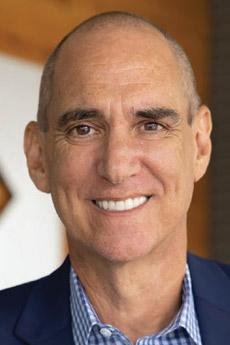
Matthew Gardner
Chief Economist Windermere Real Estate
Gardner will address housing shortages, infrastructure, short term rentals, purchase and sales and real estate trends.
As chief economist for Windermere Real Estate, Gardner is responsible for analyzing and interpreting economic data and its impact on the real estate market on both a local and national level. He offers a quarterly report on select regions from across the Western United States, including Southwest Washington, that is a popular source for real estate professionals, offering key insights in trends from housing sales, mortgage rates and other factors.
Gardner has more than 30 years of professional experience both in the U.S. and U.K.
In addition to his day-to-day responsibilities, Gardner sits on the Washington State Governor’s Council of Economic Advisors; chairs the Board of Trustees at the Washington Center for Real Estate Research at the University of Washington; and is an Advisory Board Member at the Runstad Center for Real Estate Studies at the University of Washington where he also lectures in real estate economics.
The seminar is sponsored by Windermere Real Estate, TwinStar Credit Union and Washington Realtors.
Cost is $25 per person or $400 for a VIP table. To register, call Dolly at 360-748-0114.
Alliance Member Spotlight
Rainier Eye Believes Healthcare Should Be Personal
New Business Opens on Market Street in Chehalis
By The Economic Alliance of Lewis County
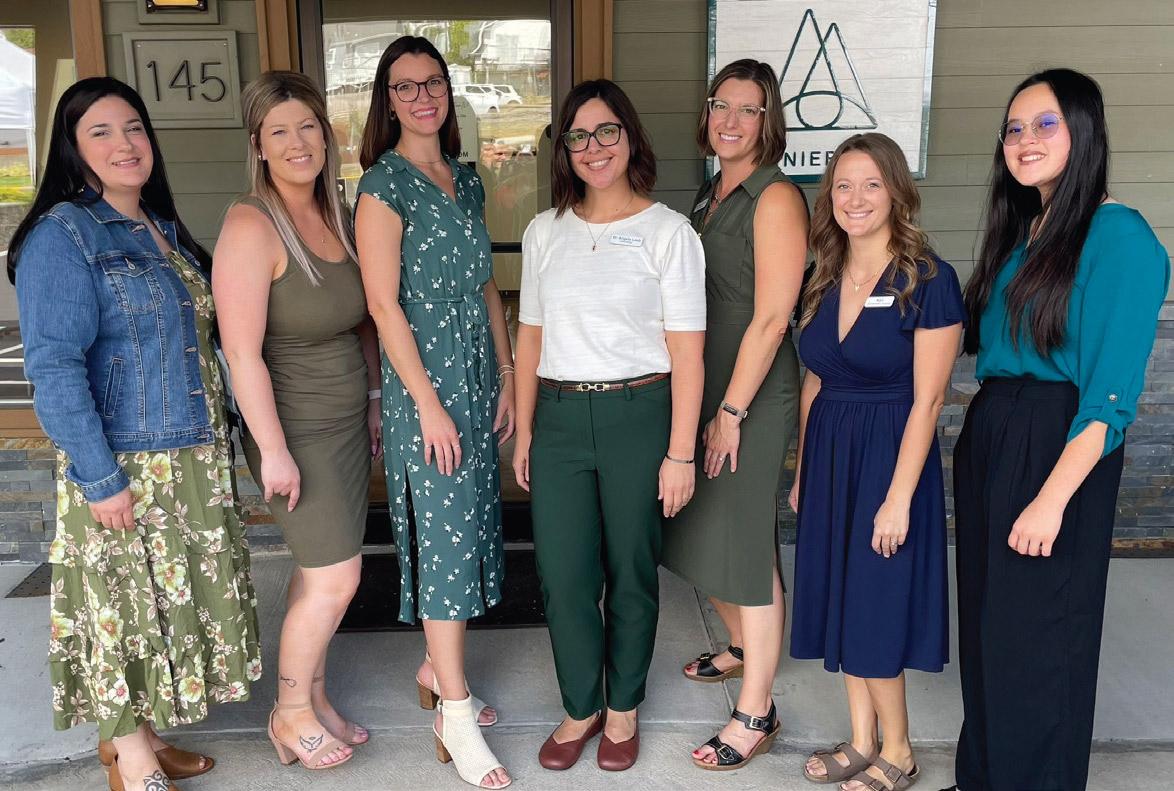
Photo provided by Rainier Eye
From left: Dani, Kimberly, Kelsea, Dr. Loeb, Dr. Ferris, Kari and Lia.
Drs. Angela Loeb and Mary Ferris established Rainier Eye in 2023.
Rainier Eye is built for the needs of the community which it serves. They prioritize selecting independently-made products, local services and staff who live in the area. Their clinic environment reflects a love of Northwest nature. They are dedicated to creating a professional and inviting space, and providing the care you would like to receive.
Their mission is to improve our patient’s quality of life by providing optimal vision through custom eyewear, contact lenses and comprehensive medical eye care. Rainier Eye & Vision is locally owned and operated which allows them to practice patient-centered eye care — putting patients before profits and treating everyone with dignity and respect.
Dr. Ferris said they just joined as a member of the Economic Alliance of Lewis County.
“When we asked how do we get connected, the Economic Alliance was one of the places that was recommended,” Dr. Ferris said. “Richard DeBolt’s (executive director of the Alliance) radio show in particular helped connect us to the community.”
They were also guests on Alliance of Lewis County’s Initiative’s Program Manager Todd Chaput’s radio show last month.
“That was amazing,” Dr. Ferris said. “The phone was literally ringing off the hook with people scheduling eye exams (after the guest appearance on the morning show “Let’s Talk About It” on KELA 1470 AM).”
MEET THE DOCTORS
Dr. Angela Loeb
Optometrist
After working as an associate doctor in Olympia for over 11 years, Dr. Loeb is excited to partner with Dr. Ferris to establish a new practice centered on patient care. She is bringing her education and experience to Chehalis, to provide eye care for the community.
Dr. Loeb was born and raised in California and has lived in Washington since 2010 and feels blessed to call the beautiful Pacific Northwest her home. She attended the University of California, Davis where she graduated with a bachelor’s degree in neurobiology physiology, and behavior in 2003.
Afterward, she worked as an eye care technician in Sacramento. This was her first introduction to the world of eye care, and she was motivated to return to school to pursue a career as an optometrist. She went on to complete her doctorate through Indiana University School of Optometry, where she graduated in 2010 with high honors.
Dr. Loeb focuses on providing high-quality patient care and believes in building relationships with her patients. She is trained in the treatment and management of eye diseases including glaucoma, macular degeneration, dry eyes and more. Over the past 10 years, she has developed a specialty in myopia management and specialty contact lens fitting. She is also experienced in providing annual diabetic eye exams.
In her free time, she enjoys books, movies, music and travel. She enjoys spending time exploring the Pacific Northwest trails with her husband Brian and four children: Henry, Penny, Charlotte and Norah.
Dr. Mary Ferris
Optometrist
Dr. Mary Ferris is eager to connect with the community as a new business owner. She has practiced optometry in Olympia since 2009 and was awarded Best of the South Sound: Best Doctor for 2022.
She enjoys seeing patients of all ages, fitting contact lenses, and solving optical challenges with creative solutions. Her specialty training is in ocular disease, low vision and surgical co-management.
Dr. Ferris grew up in Indiana and graduated from Purdue University with a Bachelor of Science in biology with a Spanish minor, studied rainforest ecology in Costa Rica, and then completed her Doctor of Optometry degree at Indiana University. Her residency training included the VA Hospital in Walla Walla, Pacific Cataract and Laser Institute (PCLI) in Kennewick, and the Centro de Rehabilitación Visual in Guanajuato, México.
In her spare time, she keeps busy by volunteering for Volunteer Optometric Services to Humanity, the Junior League of Olympia, Hope Vision Foundation, the South Sound Reading Foundation, Habitat for Humanity, Big Brothers Big Sisters and other local nonprofits. She is often found doing home improvement projects with her husband Scott and paddleboarding with her black Labrador, Pepper.
MEET THE TEAM
• Dani, from Pe Ell, is their Licensed Optician. With advanced certifications, she has the skills to fit, repair, and make glasses — but also an eye for fashion. Dani will be awaiting you in our eyewear gallery to find frames that flatter your features and fit your personality. With her 13 years of optical experience, she is skilled at selecting the best lens features for your eyes and lifestyle to ensure you see your best with your new prescription.
• Kimberly, who lives in Chehalis, is their outgoing receptionist. She has over five years of eye care experience — assisting in optical and as an optometric technician. When she’s not working at Rainier Eye, Kimberly enjoys spending time with her four kids, crafting and shopping.
• Kelsea is a fifth generation born and raised Olympian who comes to the team with 10 years of experience in Optometry practices. She’s always ready to jump in and help wherever needed — from insurance questions, to scheduling, and finding the right fit for your vision needs in optical. In her spare time, Kelsea enjoys hiking, camping, home improvement projects, and being a dog mom to Ziggy.
• Kari, a Chehalis native, is their Ophthalmic Technician and is the friendly face who greets you to start your appointment. Upbeat, organized, and eager to keep things running smoothly, Kari has over 12 years of experience in eye care assisting.
• Lia, a pre-med student, can be found helping out at the front desk during her school breaks or working behind the scenes on insurance authorizations and billing. She is on the PLU Women’s Lacrosse team, a campus tour guide and still finds time to do well in her classes.
If you want to go:
145 S. Market Blvd
Chehalis
(360) 506-5544
Rainier Eye is conveniently located on Market Boulevard which runs north-sound through the heart of Chehalis. They are in the long, green building shared with Northwest Pediatric Center, adjacent to R.E. Bennett School and across the street from Avenue Espresso.
Singleton, Hubbert join Board of Directors of the Alliance
By The Economic Alliance of Lewis County
We would like to welcome Amanda Singleton from Rainier Connect and Jonathan Hubbert of Powersports Northwest to the Economic Alliance of Lewis County Board of Directors.
Amanda is the Customer Care and Support Manager at Rainier Connect. For more than 20 years, she has enjoyed the fast-pace growth and innovation of the Internet Service Provider industry.
She connects with community leaders to strategically improve the ways we connect and do business from home and the office. Amanda also serves on the Centralia-Chehalis Chamber of Commerce Board and the Boys & Girls Club of Lewis County Board.
Jonathan, president of Powersports Northwest in Centralia, has been a longtime member of the Economic Alliance of Lewis County.
He was previously the fourth-generation owner of Tires Incorporated, which did business in Chehalis and Olympia. It had commercial facilities, a retread plant and retail departments before its sale in 2019 to Bridgestone Corporation. Hubbert went on to work as a sales manager for GCR Tires and Services before purchasing Powersports Northwest.
Hydrogen Fuel Cell Cars Are Here
Editor’s Note: Lewis County is working toward becoming a hydrogen fuel hub for Western Washington.
By Russ Mitchell – Los Angeles Times
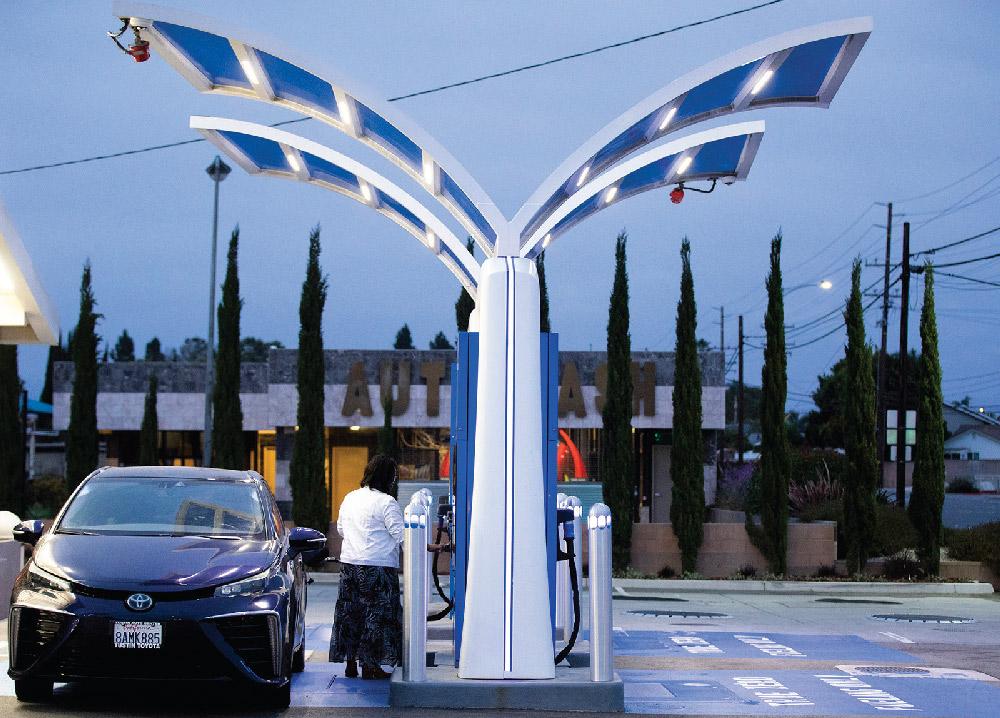
(Allen J. Schaben photos / Los Angeles Times / TNS
California is the only state with a long-distance hydrogen network. But fuel station reliability remains a big problem because of supply.
An electric car isn’t the only passenger vehicle out there that generates zero tailpipe emissions. You’ve probably heard of fuel cell cars. They use hydrogen gas to make electricity to power a motor that drives the car. The waste product: water vapor.
The technology is clean, legitimately cool and already available. But it’s not for everyone.
It’s perfect for, say, my 90-year-old father-in-law, a retired physicist and technology geek, who loves to experiment with new technology and — most importantly — has plenty of time on his hands. He needs it because the refueling infrastructure right now is even more measly and unreliable than public electric chargers, which have their own set of issues.
There are two fuel cell car models available in the U.S. today, the Hyundai Nexo and the Toyota Mirai. They’re both attractive and comfortable and engineered for a smooth but sporty drive. No problems there. They cost in the vicinity of $58,000 to buy or $385 a month to lease, and often come with free hydrogen fueling.
A great choice — if you can find the fuel
California is the only state with a long-distance hydrogen network, courtesy of you and your fellow taxpayers. The network is growing, but tiny nonetheless. There are now 59 stations, clustered in Los Angeles and the Bay Area, with an essential fill-up spot at Harris Ranch on Interstate 5 to make a trip between the two possible.
Fuel station reliability remains a big problem. Not so much the mechanics, but the supply. Stations are often completely out of fuel, and sometimes sit that way for days. My father-in-law monitors the nearest stations to his Walnut Creek home and has the time and flexibility to run out to fill up when fuel is available. State officials and the hydrogen industry say they’re working toward the goal of steady supply.
This is not to dump on fuel cells. They may well be the future of motor vehicle transportation. Technically, they can make hydrogen out of water with solar or wind energy, for no to very low greenhouse gas emissions. (Much of the hydrogen being created today requires electricity that depends in part on fossil fuels.)
Theoretically, there will be enough emissions-free energy sources in the future to supply fuel cell vehicles, and the cost of making the hydrogen plants and building now-expensive fuel cells will decline enough so that car companies can make money on them. Right now, Hyundai and Toyota are absorbing losses as they develop the business. Through June this year, Toyota has sold 1,722 Mirais, and Hyundai only 105 Nexos.
If they live up to their potential, they could be far more convenient on road trips than electric cars. That’s because refueling with hydrogen doesn’t take much longer than refueling with gasoline, and offers a dependable range of 300 to 400 miles. You can’t fill up at home, though.
For now, though, fuel cell cars only work for those willing to suffer inconvenience for the satisfaction of living at the cutting edge of motor vehicle technology.
Cooperation and Effort Will Help Lewis County Farmers
Projects Such as Grain Storage and an Agricultural Food Hub Could Produce
By Luke Moerke
Chair – Economic Alliance of Lewis County
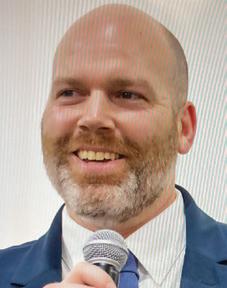
Luke Moerke
Chair - Economic Alliance of Lewis County
The Southwest Washington Fair took place last week, including the heart of the fair — the annual Junior Livestock Sale a week ago Friday.
The auction allows young farmers from the ages of 8 and 18 to raise their livestock and then show them at the fair. Then comes the exciting part — the sale. The budding farmers sold livestock for a total of $698,000. That’s an indication of the strength of the agricultural industry in Lewis County and local support.
Lewis County has plenty of agricultural acreage in play, producing everything from dairy and livestock, bees, Christmas trees and timber, blueberries, hay, and smaller, boutique farms that produce fresh farm-to-table products for area restaurants and the six farmers markets we enjoy.
The future of agriculture in Lewis County certainly looks promising. The future is built on a solid foundation, with some farmers being the fourth generation to grow in Lewis County. Our farmers have endured difficult times, for sure, such as flooding and a chronic lack of infrastructure to support the agriculture industry.
Some groups, however, are aiming to help our farmers. The Port of Chehalis, for example, realized several years ago that there was a market for grain grown in Lewis County. The difficulty was getting the grain to market, and extra money into growers’ pockets from lowered transportation costs.
In 2019, the Port of Chehalis and the Cooperative successfully petitioned the Lewis County Commissioners and were awarded $800,000 for the installment of a rail spur on the Port’s property. The rail spur was completed in the spring of 2020 and allowed growers to transload malting barley to Great Western Malting in Vancouver, Washington, that summer. The first year saw 600 metric tons of barley delivered, followed by 1,400 metric tons in 2021. About 2,500 metric tons were delivered in 2022, produced on approximately 1,000 acres.
The next phase was to build out a rail spur to the port and create a storage facility. In support of this goal, the Port of Chehalis was awarded $1.75 million through the Washington State capital budget in 2020. This funding allowed for the construction of a publicly accessible rail transload facility consisting of grain bins and conveyors for loading and unloading grain.
The Port of Chehalis is actively pursuing additional funding for the design and construction cost associated with the installation of roads and utilities to serve the facility. The port announced at an August meeting they hope to have funding secured by the end of September.
Once completed, the storage and transload facility will allow the region’s grain producers to access regional, national, and international markets. The project anticipates generating an estimated $18 million into the local economy over the next nine years.
Another promising future for our region is creating a food hub. Last month the Economic Alliance of Lewis County’s Initiative’s Program Manager Todd Chaput and External Relations Manager Eric Sonnenberg visited the Puget Sound Food Hub in Mount Vernon, which aims to make it easy for consumers to buy directly from multiple farms in that agricultural hotspot.
The Puget Sound Food Hub started out as a weekly wholesale market in a parking lot underpass 13 years ago. Today the hub serves restaurants, hospitals, schools, grocery stores and universities. The hub collects and stores produce in a warehouse, supporting more than 60 sellers for a six-county region.
Imagine such a warehouse located in Lewis County with its central location serving Southwest Washington.
We also have the potential to develop a much needed USDA meat processing facility, along with the ag hub. There is a lack of processing opportunity in our state, in general, and it’s affecting the local small farms in our region as well.
Again, our agriculture future looks bright, but it will take effort and partnerships between such groups as the Port of Chehalis and the Economic Alliance of Lewis County.
Luke Moerke is chair of the Economic Alliance of Lewis County, and owner of Exodus Engineering.
•••
Luke Moerke is chair of the Economic Alliance of Lewis County, and owner of Exodus Engineering.
Thurston-Lewis-Mason Central Labor Council
United Food and Commercial Workers Respect Workers and Small Business
THE WASHINGTON
FEDERATION OF STATE EMPLOYEES
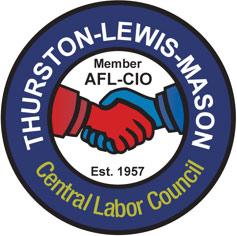
In a Cincinnati Enquirer opinion piece co-authored by Rodney McMullen and Vivek Sankaran, it is suggested that the proposed merger between Kroger and Albertsons will lead to lower prices, more choices, no layoffs, and generally brighter skies ahead. While it’s fair to say intuition can be misleading, these outcomes seem unlikely upon the shortest reflection. It should also be noted that Rodney McMullen and Vivek Sankaran are, of course, the CEOs of Kroger and Albertsons respectively. While not the most notorious of billionaires, perhaps Rodney McMullen deserves the moment in the sunlight he’s finally getting. Following soaring pandemic profits, Kroger spent over $1 billion in stock buybacks, a way to inflate one’s stock values that was once considered illegal market manipulation. Between pandemic profits and the merger, McMullen also handed himself millions of dollars in raises. The oft-cited statistic about McMullen is that he makes 5000% of the median Kroger employee’s salary. However, this statistic was calculated using only his base 2021 salary – $1.34 million. Accounting for bonuses and stock options, that number jumps to roughly 83000%. If the work you do is worth less than six figures, who is working hard enough for $20 million? Unfortunately, this value could not be passed on to his employees. Pandemic hazard pay, called “hero” pay to avoid acknowledging the danger employees faced, lasted less than two months – March 29th through May 16th of 2020. The peak of COVID hospitalizations occurred between December of 2020 and January of 2021. Where were the heroes then? Where were the heroes when Kroger failed to pay employees their entire compensation, in some cases not paying them at all, between September and November of 2022? While it was eventually corrected, largely thanks to the United Food and Commercial Workers Union, it’s unlikely Kroger intends to account for the credit impact to those forced to take out loans. Nor do they intend to pay the interest that could have been accumulated for those who had the opportunity to save that money. These are examples of wage theft at its finest. As if to demonstrate just how hard they can fumble, it was reported earlier this year that Kroger accidentally overpaid 50 bakery managers’ bonuses. Like any company of integrity, they demanded repayment, in some cases the entire bonus. One report suggested Kroger demanded more than they paid. While initially sending demands with threats of legal action, they changed tune after attracting media attention. Perhaps this was another payroll software error, the excuse they used for 2022’s pay disparities. If Kroger can’t be trusted to pay employees or fix bugs in their payroll software rather than line their pockets at every opportunity, why should we trust them regarding this $25 million merger that will narrow consumer options and create monopolies in some communities? Even now, Kroger is slashing hours across their stores. Even now, the merger is degrading the livelihoods of employees. Even now, the working class is bearing this burden. How many lies will it take?
Alliance Board Member Spotlight
Jonathan Hubbert — President Powersports Northwest
Jonathan and his sister were previously the fourth-generation owners of Tires Incorporated, which did business in Chehalis and Olympia. It had commercial facilities, a retread plant and retail departments before its sale in 2019 to Bridgestone Corporation. Hubbert went on to work as a sales manager for GCR Tires and Services before purchasing Powersports Northwest.
Q: How long have you been a member of the Economic Alliance of Lewis County?
A: From its inception
Q: Why did you join The Alliance?
A: To continue to help promote growth and opportunities to the businesses and the people of Lewis County
Q: What is a key for the success of your business?
A: People. Our employees, and our customers. It always comes down to people.
Q: What do you enjoy most about volunteering?
A: Being able to network and be around others that you can learn and grow from, that are not in your normal day-to-day life.
Q: What do you love most about your industry?
A: The ability to sell experiences and fun to people!
Q: How do you define success?
A: The ability to be able to have time and experiences with friends and family
Q: Who inspires you?
A: I have been fortunate with so many great role models in my life, but what it comes down to, my daughter inspires me most to be a positive role model for her.
Q: What is your favorite meal?
A: Any Mexican food, and of course a good margarita to go with it!
Q: What do you do for pleasure outside of running your business?
A: Spending time with my family and

